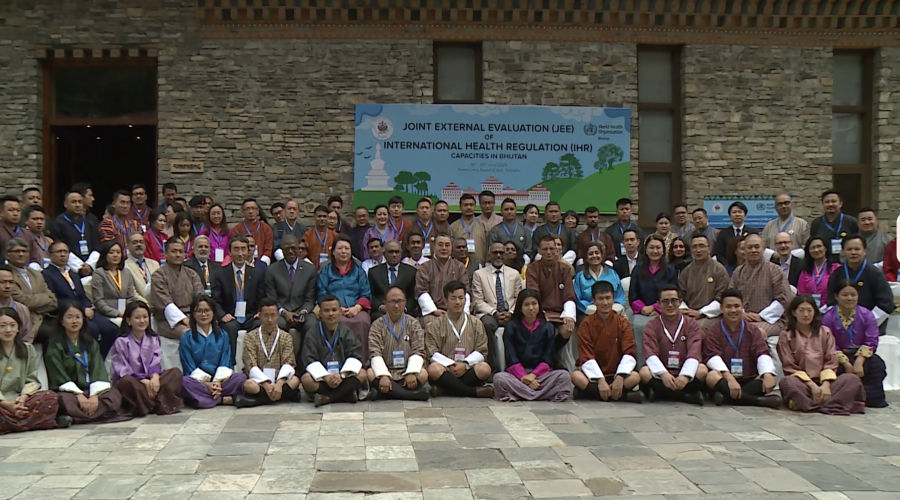 Bhutan is not yet prepared to respond to a radiation emergency. This is according to the findings of the Joint External Evaluation on the country’s readiness to prevent, detect and respond to public health threats, which concluded on Friday. However, according to experts, this is not a concern now because the risk of a radiation emergency in the country is very low.
Bhutan is not yet prepared to respond to a radiation emergency. This is according to the findings of the Joint External Evaluation on the country’s readiness to prevent, detect and respond to public health threats, which concluded on Friday. However, according to experts, this is not a concern now because the risk of a radiation emergency in the country is very low.
Currently, Bhutan uses radiation only for medical diagnostic purposes. Even so, experts recommended building capacity in the future.
Bhutan also has limited capacity to respond in technical areas such as biosafety and biosecurity, infection prevention and control and chemical events. The evaluation looked at 19 health technical areas in total.
Among them, Bhutan scored the lowest in its readiness to handle a radiation emergency.
“When it comes to Bhutan, there is low use of radiation; it is largely used for diagnosis, and that too only for X-ray machines and some other diagnostic instruments. You do not have any nuclear reactors, and currently, you also do not have an oncology or cancer treatment facility,” said Dr Reuben Samuel, Programme Area Manager, WHO Emergencies Programme, WHO SEARO.
However, he added that Bhutan needs to prepare for a radiation emergency with the government’s plan to open a cancer treatment facility.
“Going forward, there is the intent of the government of Bhutan to open a cancer treatment facility, and then there would be more instrumentation that will be used. In that context, Bhutan needs to start preparing for if there is a small emergency related to these radio diagnostics,” said Dr Reuben Samuel, Programme Area Manager, WHO Emergencies Programme, WHO SEARO.
In addition, according to the findings, Bhutan needs to start preparing for other health emergencies in which Bhutan is at a higher risk.
“In the multi-hazard risk profile of the country which Bhutan did quite recently, just last year, some of the major risks that have been identified are related to earthquake, then infectious diseases, largely mosquito-borne, vector-borne diseases, zoonotic diseases, that is, diseases which occur in animals but can spread to humans,” said Dr Reuben Samuel, Programme Area Manager, WHO Emergencies Programme, WHO SEARO.
The WHO experts also recommended Bhutan to improve leadership and governance, financing and resources to address health emergencies and maintain health security.
Meanwhile, the health minister said that the recommendations will help enhance the country’s health system.
“In this forum, I urge all to take ownership of recommended priority actions identified and committed to their timely implementation. Together, let us continue working towards a more robust and secure health system,” said Tandin Wangchuk, Health Minister.
The recommendations will be used as a reference to develop the country’s National Action Plan for Health Security.
More than 90 experts, including 21 from abroad, took part in the five-day Joint External Evaluation. They examined Bhutan’s readiness to prevent, detect and respond to public health emergencies. The first evaluation was conducted in 2017.
Singye Dema
Edited by Sonam Pem









